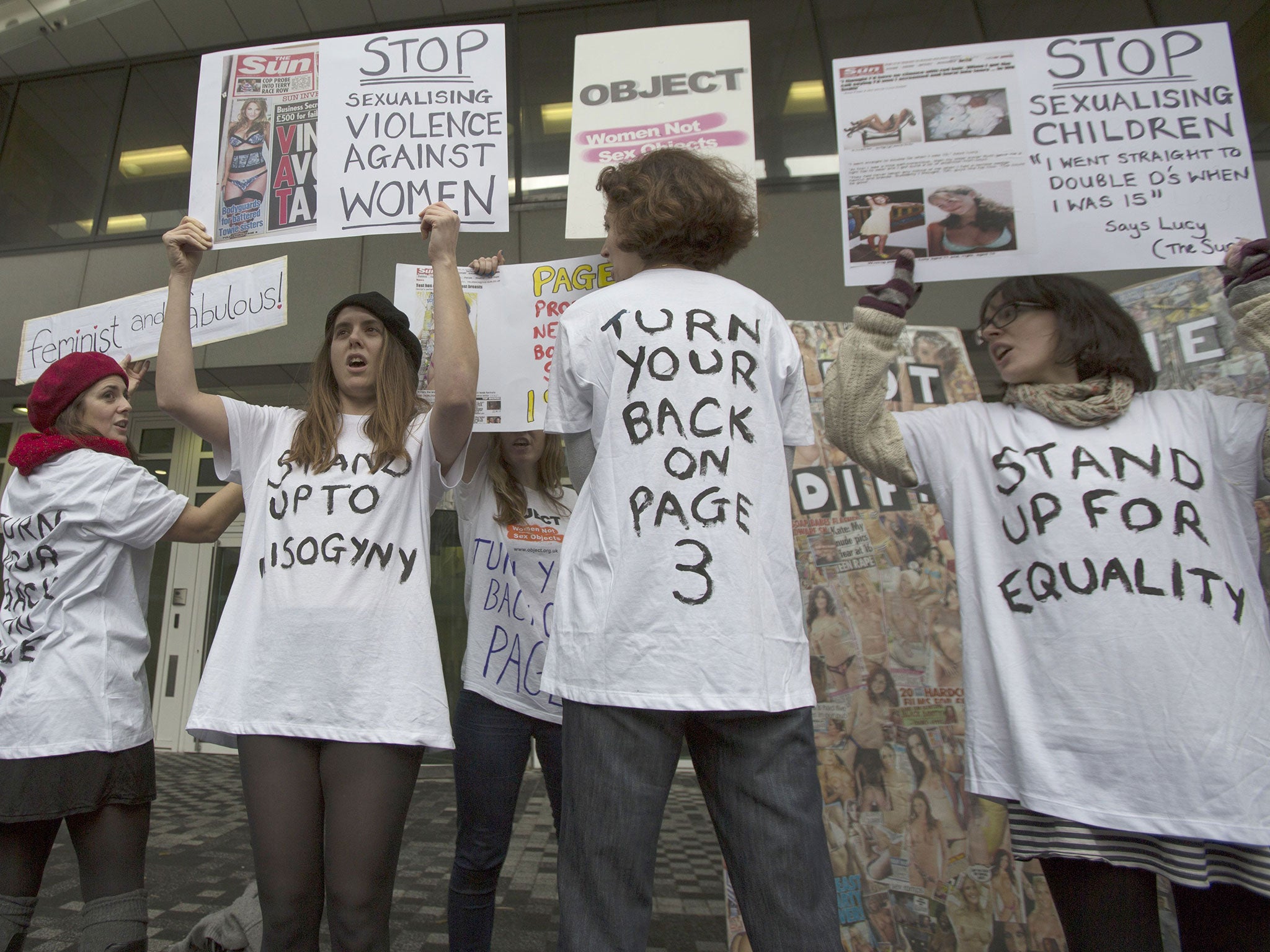Page 3 has long been an anachronism, and we risk exaggerating the significance of its demise
If this ‘institution’ represented anything, it was the hegemony of the Murdoch empire


Your support helps us to tell the story
From reproductive rights to climate change to Big Tech, The Independent is on the ground when the story is developing. Whether it's investigating the financials of Elon Musk's pro-Trump PAC or producing our latest documentary, 'The A Word', which shines a light on the American women fighting for reproductive rights, we know how important it is to parse out the facts from the messaging.
At such a critical moment in US history, we need reporters on the ground. Your donation allows us to keep sending journalists to speak to both sides of the story.
The Independent is trusted by Americans across the entire political spectrum. And unlike many other quality news outlets, we choose not to lock Americans out of our reporting and analysis with paywalls. We believe quality journalism should be available to everyone, paid for by those who can afford it.
Your support makes all the difference.I was somewhat startled when I heard the 8am news bulletin on the BBC. The lead story was that the Sun newspaper had decided to abandon showing pictures of topless women on its page three. It wasn't the news itself that shocked me: it was the fact that it was deemed of such importance to rank above the Islamic State's militants threat to kill two Japanese hostages, the IMF's warning over the slowing down of the global economy, and even the death of Coronation Street's Deirdre Barlow. The BBC said that the Sun was “reported” to be dropping what it called “one of the most controversial features in British journalism”.
Journalism? I don't recognise Page 3 as an aspect of the trade I have been engaged in all my adult life, and neither do I share the BBC's view about its importance. In 1970, when this feature began, and for maybe a couple a decades after, it was possible to make a case that the prominence of a largely unclothed woman on page three of Britain's biggest-selling daily newspaper was emblematic of a deeper sexism, of the casual objectification of women, and of a society where women still had to fight against rampant prejudice in public life.
I'm not saying that this particular battle has been won. Far from it. Sexism may be more insidious, but is still evident. I'm merely suggesting that Page 3 has now become so anachronistic and irrelevant that its power to affect behaviour had all but gone. Even Rupert Murdoch himself said last year that he thought Page 3 was “old-fashioned”, and whether dyed-in-the-wool feminists agree or not, we have become a vastly more sophisticated, mature and sensitive society, in which Page 3 has become about as symbolic as a Kiss Me Quick hat.
In fact, if Page 3 is representative of anything, it is of the hegemony of the Murdoch empire, the fact that it stood for so long as a bulwark against widespread public opinion that, in this way, half the population of Britain was being undermined and insulted. But the idea that the announcement of the covering up of Page 3 signals victory is risible. The Sun's topless pictures have just migrated to their website where, with a couple of clicks, you can see 25-year-old Lucy from Warwick in all her pulchritudinous glory.
That's why the physical presence of Page 3 is such an anachronism, and why there is a much more important issue to consider. The easy availability and pervasiveness of Internet pornography is a hugely greater threat to the well-being of society and, as far as the harmful sexualisation of women is concerned, leaves Page 3 a long way behind. Internet porn is definitely changing people's behaviour, and not just in the bedroom. A friend of mine recently told me that she finds it impossible to strike up meaningful relationships with young men, as they'd much rather go home and sit in front of a computer screen.
I know that you if you don't win the small battles, the wars will never be won. And in that respect it's good that Page 3 has gone. But no one, including the BBC, should overstate its significance.
Join our commenting forum
Join thought-provoking conversations, follow other Independent readers and see their replies
Comments